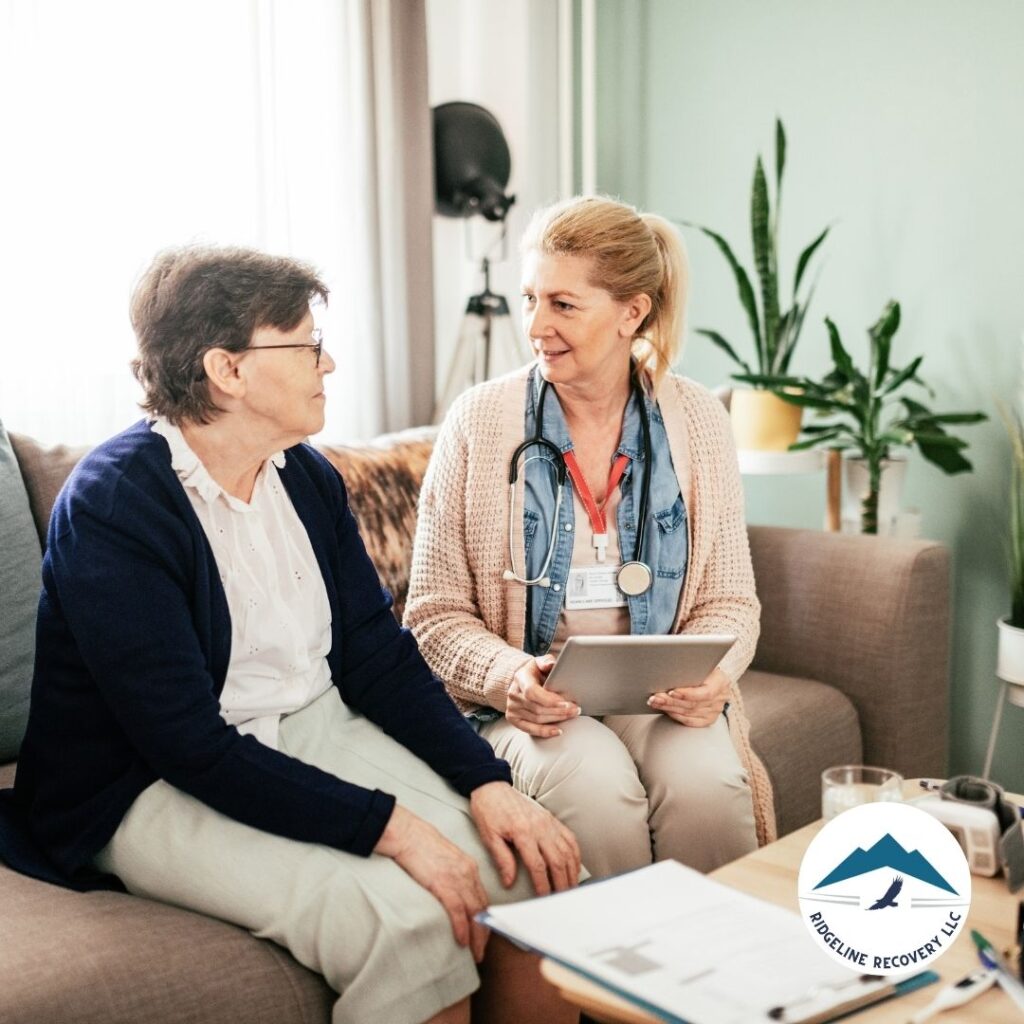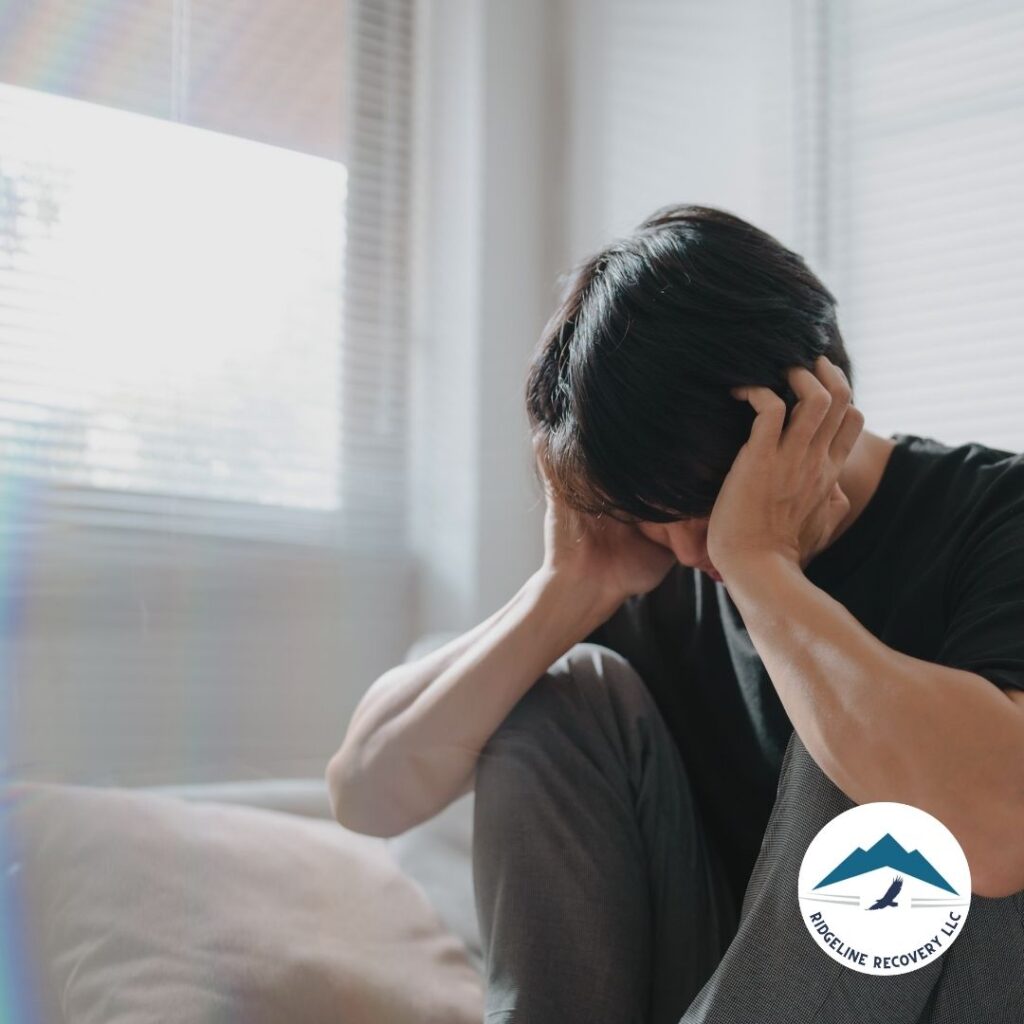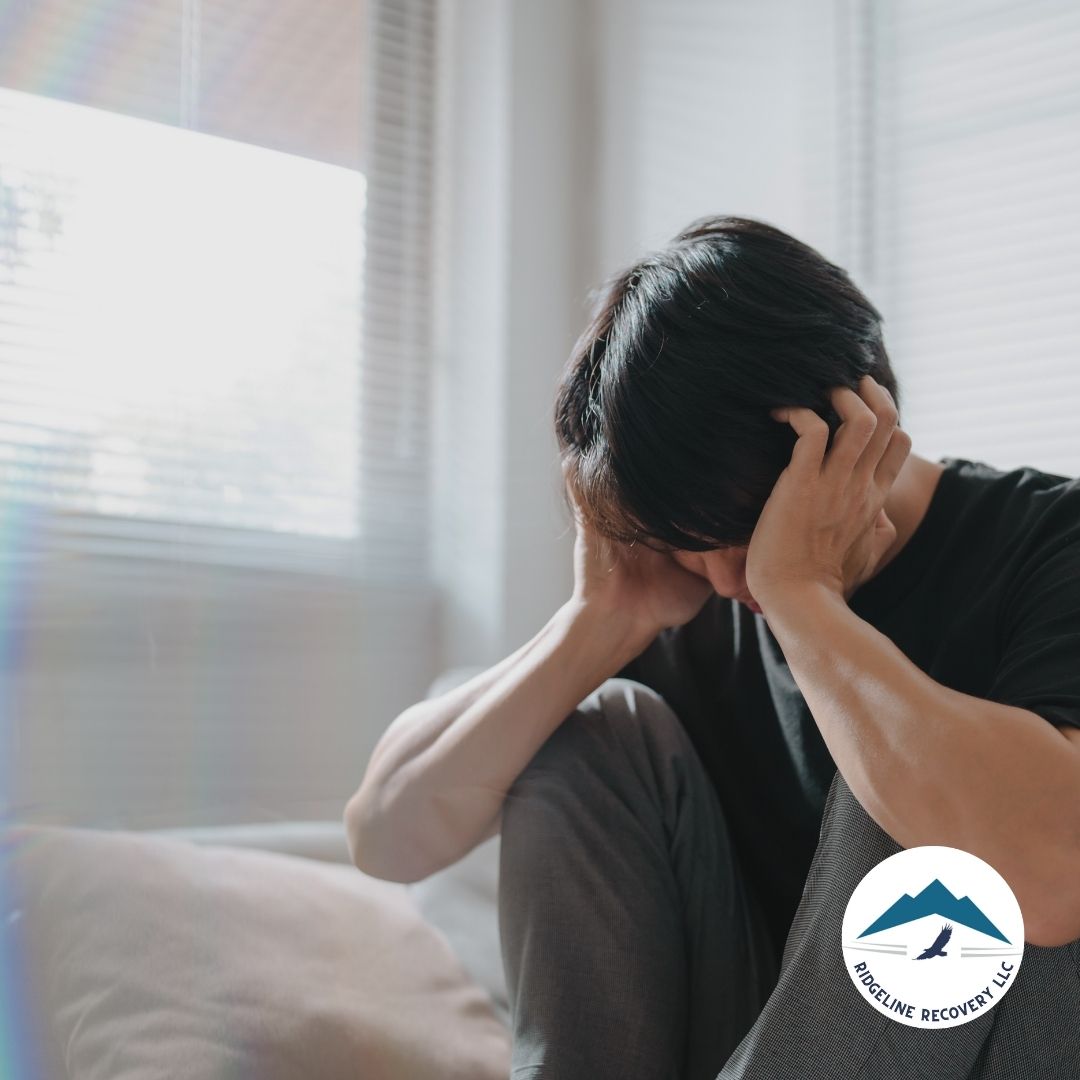Alright, so you’re searching “Vivitrol clinic near me,” which means you’re probably looking for real answers on getting clean, staying clean, and handling all the stuff that comes with it.
Maybe you’ve tried a few things already. Maybe you’re sick of the cycle—start, stop, relapse. Or maybe you just want to know if a Vivitrol clinic can be the game-changer everyone says it is.
So, I’m going to walk you through everything—what Vivitrol actually does, what it feels like to go through treatment, and all the questions that typically pop up along the way.
What’s the Deal with Vivitrol?
Let’s get straight to it.
Vivitrol is a brand name for naltrexone, an opioid antagonist. Basically, it blocks the “high” you get from alcohol or opioids.
But here’s the thing: It doesn’t replace the high. It takes away the desire for it. You can’t get hooked on Vivitrol, and because it’s a monthly shot, it takes the daily decision-making out of the equation.
If you’re fighting cravings every day, Vivitrol can be that guardrail that lets you focus on everything else: work, family, staying clean without the constant “should I or shouldn’t I.”
How Does Vivitrol Fit into Recovery?
First, let’s be clear: Vivitrol alone isn’t a cure. If you just show up once a month for a shot and go right back to old habits, you’re going to find yourself right back in square one.
But combine Vivitrol with a solid support system—therapy, accountability, and community—and suddenly you’ve got a strong foundation to build on.
Think about it like this:
- Vivitrol manages cravings. That’s the medicine part.
- Therapy handles the mindset. You’re reprogramming your brain.
- Community supports your motivation. You’re not doing it alone.
Why Go to a “Vivitrol Clinic Near Me”?
So, why specifically look for “Vivitrol clinics near me” instead of just getting a regular prescription?
It’s because the best Vivitrol clinics don’t just hand you a shot and send you on your way. They’re set up to help you dig deeper.
You get:
- Access to addiction therapy services
- Mental health support, if you’re dealing with anxiety, depression, or other challenges.
- A whole team that keeps you accountable and actually cares if you’re making progress.
Places like Ridgeline Recovery LLC in Columbus? They’re known for going beyond the basics, especially if you’re serious about breaking free from addiction.
Common Misconceptions About Vivitrol
Let’s bust some myths so you can decide if it’s the right fit.
“Vivitrol is just a replacement drug.”
False. Unlike methadone or Suboxone, which are forms of opioid replacement, Vivitrol is non-addictive. You won’t get withdrawal symptoms if you stop.
“It only works if you’ve been sober for a while.”
Kind of. You need to be clean for 7-10 days before starting Vivitrol to avoid severe withdrawal symptoms. After that, it’s fair game.
“It’s a miracle cure.”
Nope. Vivitrol won’t magically change your life overnight. But it’s a powerful tool when you pair it with the right mindset and support.
The Real Experience of Going to a Vivitrol Clinic Near Me
Imagine showing up for your first appointment. Here’s what you’re likely going to go through:
- Intake and Assessment
You’ll have a sit-down where they go over your history, cravings, triggers, mental health concerns, and past attempts at getting clean. - Medical Evaluation
You’ll get a full evaluation because Vivitrol isn’t for everyone. If you’re physically dependent or have certain health issues, they’ll work with you to find the best path forward. - Therapy Sessions and Group Support
This is where the magic happens. You’ll dive deep into why you’re here, what’s keeping you in the cycle, and what it’s going to take to break it. - Monthly Injection
After that first shot, you’ll feel a bit more at ease. It’s like knowing you’ve got that extra bit of security.
A Note on “Detox Centers Near Me”
If you’re coming straight out of heavy use, Vivitrol isn’t the first step. You’ll need to detox first, which is why detox centers near me can be a good initial stop. Once you’re clean, then it’s time for the clinic.
The Long-Term Plan: Vivitrol Isn’t Just About the Shot
So you’ve got the Vivitrol shot. Now what?
Most people think they can coast after the first couple of shots, but real talk: recovery is a marathon, not a sprint.
Monthly Routine at a Vivitrol Clinic
- Check-In Meetings
Every visit, you’ll have check-ins where they go over your progress and challenges. It’s accountability without the judgment. - Ongoing Therapy
Therapy is going to be a core piece of this. Whether you need a mental health therapist near me or addiction therapy near me, staying in touch with professionals helps you manage triggers and avoid falling back. - Routine Health Checks
Clinics monitor your liver function because Vivitrol has some impact on the liver. Just another layer of ensuring you’re on track.
Building Life Skills and Accountability
Ridgeline Recovery, for instance, has services to help with real-life skills—managing money, building relationships, or just staying steady in a world where everyone else is drinking or using.
You’re not just getting a shot. You’re learning how to stay clean in a world that’s going to keep testing you.
FAQs about Vivitrol and the Treatment Process
Let’s hit the common questions so you have the info you need.
1. How much does Vivitrol cost?
Vivitrol isn’t cheap. But if you’ve got insurance like GEHA or Medical Mutual of Ohio, you may be able to get significant help with the cost.
2. Can I get Vivitrol at just any clinic?
Not all clinics are set up to offer Vivitrol. That’s why finding a Vivitrol clinic near me matters—they specialize in this treatment and offer the right support to back it up.
3. Are there side effects?
Yeah, there can be. Some people report nausea, muscle pain, or fatigue. But that’s why you’re working with a clinic that tracks your health. Any side effects? They’ll adjust your care plan.
4. Can I drink while on Vivitrol?
Nope. The whole point is that it reduces cravings for both alcohol and opioids, but it’s not safe to test that theory.
5. What if I need other medications?
It’s usually fine, but always disclose every medication you’re taking with your clinic. This is especially important for people on other mental health meds.

Making the Most of a Vivitrol Clinic Near Me: Tips and Strategies
Let’s get into some actionable strategies to get the best out of this.
- Show Up Consistently
Don’t skip appointments. This one thing—just showing up—will keep you grounded and accountable. - Build Your Routine
Routine is your safety net. Every day you stick to a healthy structure (exercise, sleep, social connections), you’re reinforcing your recovery. - Leverage Group Therapy
Don’t underestimate the power of hearing other people’s stories. Group therapy can put your struggles into perspective and remind you you’re not alone. - Have a Plan for High-Risk Situations
Identify the people, places, and situations that typically trigger you. Knowing your triggers isn’t enough; you need a go-to plan for handling them.
Why People Are Choosing a “Vivitrol Clinic Near Me” Over Traditional Options
If you’re wondering why people are Googling “Vivitrol clinic near me” and skipping the typical rehab setups, it comes down to one thing: control. Vivitrol doesn’t make choices for you, but it makes those choices a lot easier to stick to. The craving’s blocked, your mental clarity is stronger, and you can approach recovery without feeling like you’re fighting an internal battle every second.
Here’s how a dedicated Vivitrol clinic provides that edge:
- Customized Care Plans
A top-tier Vivitrol clinic will work around your needs, habits, and personal goals. It’s not a one-size-fits-all model. You might get Vivitrol along with access to addiction therapy services or tailored programs that address specific dependencies. This can make a big difference compared to general outpatient setups where the level of customization is limited. - Streamlined, One-Stop Access to Addiction Therapy and Mental Health Services
Many people don’t realize it, but mental health services are usually part of the recovery path. Vivitrol clinics like Ridgeline Recovery LLC are set up to include mental health evaluations and therapy, which is a game-changer if you’re dealing with things like anxiety, PTSD, or depression that feed into addiction cycles. - Focus on Long-Term Recovery Rather Than Short-Term Detox
Detox alone is rarely the whole answer. A “detox center near me” might get you clean for a few weeks, but without the mental and emotional work, it’s hard to sustain. Vivitrol clinics take that longer view, prioritizing mental health therapy and planning for what life will look like beyond the clinic walls.
The Power of Location: Why “Vivitrol Clinic Near Me” Matters
When it comes to recovery, convenience is key. The easier it is for you to stick with your treatment, the higher your chances of success. That’s why location matters. Searching “Vivitrol clinic near me” isn’t just about finding the closest option; it’s about integrating treatment into your daily life so that recovery isn’t an “event”—it’s just part of your routine.
What to Look for in a Local Vivitrol Clinic
Not all clinics are created equal. Here’s what separates a high-quality clinic from the rest:
- Comprehensive Services
A clinic that offers everything from the Vivitrol injection to mental health counseling is a huge win. You don’t want to be bouncing from place to place. One clinic, one plan. - Flexible Hours
Life doesn’t stop because you’re in recovery. Look for a clinic that understands the importance of work, family, and other commitments, and offers flexible hours that can adapt to your schedule. - Support for Co-Occurring Mental Health Conditions
Addiction rarely stands alone. Whether you’re dealing with depression, anxiety, or trauma, a Vivitrol clinic that incorporates mental health support into its program will help you address both addiction and underlying issues.
Life After Your First Few Injections at a Vivitrol Clinic Near Me
So, you’ve gotten your first few shots. Things are looking good. Cravings are manageable, life’s feeling a little more stable, but the journey doesn’t stop here.
Building a Routine That Works for You
It’s time to get intentional about how you’re structuring your day-to-day life. Here are some practices that make a difference:
- Daily Accountability
Set a routine that keeps you on track. Whether it’s regular check-ins with your therapist, journaling, or using a recovery app, build accountability into your daily life. - Exercise
Physical activity is a natural mood booster and helps manage cravings. Make it a non-negotiable part of your routine. Even a 20-minute walk can do wonders. - Mental Health Care
Whether it’s a mental health therapist near me or online therapy, continuing to work on your mental health is crucial. Remember, Vivitrol handles the cravings, but your brain still needs reprogramming.
Tackling Social Situations and High-Risk Events
Recovery doesn’t mean isolating yourself from life’s events, but it does mean strategizing for challenging situations.
Tips for Navigating Social Situations
- Have a Buddy System
Bring someone who understands your goals and can offer support. It’s not about babysitting—it’s about having someone who’s got your back. - Know Your Limits
If a situation feels risky, don’t hesitate to leave. Recovery isn’t about proving how much you can handle; it’s about choosing what’s best for you. - Pre-Plan Responses
Have a quick response ready for offers of alcohol or drugs. It can be as simple as, “I’m taking a break right now.” The fewer words, the better.
Why Accountability is Everything
You can have all the tools in the world, but without accountability, it’s easy to slip back into old habits.
Forms of Accountability that Work
- Professional Accountability
The benefit of working with a Vivitrol clinic near me is the regular, monthly check-in. These sessions aren’t just about getting the injection; they’re about tracking progress, talking through challenges, and adjusting your plan if needed. - Community Accountability
Whether you connect with a recovery group, AA, or even online forums, being part of a community provides a powerful layer of accountability. Knowing others are on the journey with you adds that extra layer of motivation. - Personal Accountability
Set personal goals and track your progress. Use journaling or habit-tracking apps to measure small wins over time.
Combining Vivitrol with Holistic Approaches
More and more, people are seeing the value in combining medical treatments like Vivitrol with holistic approaches. While Vivitrol blocks cravings, holistic practices help you build mental and emotional resilience.
Effective Holistic Approaches
- Meditation and Mindfulness
Mindfulness practices can help you become more aware of your cravings and triggers without acting on them. Just a few minutes a day can make a noticeable difference. - Breathing Exercises
When anxiety hits, having a few go-to breathing exercises can calm your nervous system and keep you grounded. - Nutrition
The right diet can actually reduce cravings. Avoiding sugar and processed foods can help stabilize your mood and energy levels.
Embracing a New Mindset for Recovery
Recovery isn’t just about quitting substances. It’s about redefining what it means to live a fulfilling life.
Shifting Your Perspective
One thing that stands out in the recovery journey? Mindset is everything. Instead of viewing recovery as something you “have to do,” start seeing it as a chance to build a new life. When you adopt that perspective, the process doesn’t feel like a burden. It’s an opportunity.
Finding the Right Support System
Success in recovery is rarely a solo journey. Finding the right support system can make the difference between “getting by” and truly thriving. Here are some options to consider:
- Sober Living Homes Near Me
These are structured, supportive living environments that help reinforce sober habits. Many people find that a few months in a sober living house after leaving inpatient rehab provides a smooth transition to full independence. - Counseling for Family Members
Addiction doesn’t just affect you—it impacts everyone around you. Encourage family members to seek counseling. Many clinics offer family therapy sessions to help everyone involved understand their role in supporting your recovery. - Regular Check-Ins with a Mental Health Therapist Near Me
Therapy isn’t just for crisis moments. It’s a preventive tool, helping you catch issues before they snowball.
Preparing for Life Beyond the Vivitrol Clinic
Once you’ve built a foundation at a Vivitrol clinic, the next step is keeping it going.
Gradual Transition to Self-Management
Your clinic will eventually work with you to taper off Vivitrol, but it won’t be an overnight shift. This is about creating a sustainable life where you’re not just sober—you’re thriving.
Long-Term Recovery Goals
Consider setting long-term recovery goals, such as:
- Career Advancement
Many people find they have more focus and drive after recovery. Take this time to pursue career goals that you may have put on hold. - New Hobbies and Passions
Filling the void left by addiction with healthy passions can be incredibly rewarding. Whether it’s art, fitness, or even a new skill, find something that excites you. - Building Meaningful Relationships
Recovery allows you to develop deeper, more meaningful relationships. This can be one of the most rewarding aspects of the process.
Beyond Vivitrol: Expanding Your Support Network
You’re not just trying to beat addiction. You’re rebuilding your life.
Whether that’s finding sober living homes near me or seeking community through refuge recovery programs, expanding your support system is what keeps you from sliding back.
- Stay connected with people who “get it.” Recovery is a lifelong journey. Surround yourself with others who’ve been through it.
- Try holistic therapy if it helps—meditation, exercise, journaling. Every positive habit you build is another layer of armor.
Breaking Down How Vivitrol Works in the Body
When you think about finding a “Vivitrol clinic near me,” the question often isn’t just “Where can I find one?” but “How does this actually work for me?” Understanding how Vivitrol operates can make you feel more confident in its role in recovery.
The Science Behind Vivitrol: What You Need to Know
Vivitrol, or naltrexone, functions by blocking the opioid receptors in the brain. This is different from drugs like methadone, which can still bind to those receptors but at a lesser intensity. With Vivitrol, cravings are reduced, which allows you to focus more on addiction therapy near me or addiction recovery services that go beyond just the chemical side of things.
Here’s how Vivitrol interacts with your system in a way that makes recovery less of a daily struggle:
- Monthly Dosage: Unlike daily treatments, Vivitrol is a monthly injection. This means you’re not thinking about it every day—no pills to remember, no doses to adjust. One injection per month provides consistent support.
- Extended Release: Vivitrol releases gradually, keeping cravings in check all month long. This is different from typical medications that can have peaks and valleys in effectiveness.
- Non-Addictive: Vivitrol is non-addictive, making it ideal for people focused on achieving total sobriety. Unlike some treatments that substitute one addiction for another, Vivitrol simply blocks cravings without the risk of dependency.

Why Seeking a “Vivitrol Clinic Near Me” Empowers Your Recovery
Every search for a “Vivitrol clinic near me” is a step toward reclaiming control over your life. When you’re ready to work with a clinic, you’re saying that you’re ready to take back the reins. And here’s why that’s powerful: You’re actively seeking support that not only works with your brain chemistry but also pairs with mental health treatment centers near me for a holistic approach.
Building a Customized Recovery Plan at a Vivitrol Clinic
With Vivitrol, you’re not just handed a treatment and sent on your way. You’ll work with counselors and therapists to create a full-fledged plan that aligns with your lifestyle, work commitments, and family life.
A solid clinic will likely offer services like:
- Addiction Recovery Columbus: Regional services tailored to your specific needs. If you’re based in Columbus, working with a clinic familiar with the area’s unique challenges and resources can be a huge plus.
- Integrated Mental Health Support: Addressing addiction without tackling mental health is like building a house on sand. A reputable Vivitrol clinic will connect you to mental health therapists near me who can dig into the underlying issues, helping you break the cycle of addiction and find sustainable mental peace.
- Access to Inpatient Drug Rehab Facilities Near Me: If you find that outpatient services aren’t quite enough, a reliable clinic can refer you to inpatient rehab services or facilities for more intensive support.
Practical Tools for Long-Term Success
The recovery journey isn’t just about those first few months. This is about creating a lifestyle that supports sobriety. After you’ve been through your initial program, you’ll want to rely on tools and habits that keep you on track.
1. Physical Health and Nutrition
- Balanced Nutrition: What you eat affects your mood, energy levels, and mental clarity. Eating a balanced diet with protein, healthy fats, and low-glycemic carbs can keep your energy steady and support a positive mental state.
- Exercise for Endorphins: Physical activity releases endorphins, which can be a natural way to manage stress and elevate your mood. Try incorporating activities that you enjoy, like hiking, yoga, or weight training, to stay consistent.
- Sleep Hygiene: Prioritize quality sleep. A well-rested mind is less susceptible to cravings and has a greater ability to cope with stress.
2. Continued Access to Mental Health Services
You might think that after your initial phase of treatment, you’re done with therapy or counseling. Not true. Continued mental health support is essential for building resilience.
Look for:
- Mental Health Clinics Near Me: Even after your primary program ends, checking in with a counselor periodically can help you stay grounded and catch issues before they become big problems.
- Mental Health Hospitals Near Me: If you encounter a crisis or feel particularly vulnerable, having access to a mental health hospital for emergency support is crucial. Familiarize yourself with nearby options.
- Group Therapy and Support Groups: Peer support can be one of the most effective tools for lasting recovery. Being part of a recovery community—like Refuge Recovery or AA—keeps you connected to people who understand the journey firsthand.
Life Beyond the Clinic: What Your Routine Could Look Like
After you complete a program at a Vivitrol clinic, what’s next? Here’s a sneak peek at what life beyond the clinic could involve.
Daily Practices for Sober Living
- Morning Journaling: Start each day with intention. Write down your goals, express gratitude, and mentally prepare for any challenges you might face.
- Midday Check-Ins: Take a moment to gauge how you’re feeling. Are there triggers you’re facing? Is your stress creeping up? These quick check-ins help you stay mindful and in control.
- Evening Review: Reflect on your day. Celebrate the wins and consider what you might improve for tomorrow.
This routine doesn’t just keep you grounded—it actively reinforces the mindset needed for long-term success.
FAQ: Addressing the Unknowns of Recovery with Vivitrol
Can I Drink on Vivitrol?
No, Vivitrol is designed to block the effects of opioids and alcohol. Drinking on Vivitrol can lead to uncomfortable side effects and defeat the purpose of your recovery efforts.
Will Vivitrol Make Me Feel “Numb”?
No, Vivitrol doesn’t numb emotions or mental clarity. It simply blocks cravings. Many people report feeling more in control of their emotions, as they’re no longer constantly dealing with intense urges or cravings.
What If I Miss a Dose?
Missing a dose is not ideal but not the end of the world. However, you may experience a return of cravings. It’s best to contact your clinic as soon as possible to reschedule your injection.
How Long Will I Be on Vivitrol?
This varies. Some people find they benefit from staying on it for a year or more, while others may taper off sooner. Work with your clinic to determine the best timeline for your unique situation.
Building a Lifestyle That Replaces the Need for Vivitrol
Eventually, the goal is to move past needing Vivitrol or any other medication. Here’s how you can start building a lifestyle that supports sobriety on its own.
Developing Meaningful Hobbies
Finding hobbies that keep you engaged is essential. Here are some ideas:
- Art and Creativity: Whether it’s painting, sculpting, or music, creativity is a powerful outlet for emotions and can be incredibly rewarding.
- Sports and Physical Activity: Staying active doesn’t just keep you fit—it helps you build discipline and resilience.
- Volunteering: Helping others can be one of the most fulfilling ways to feel connected to something greater than yourself.
Building Relationships That Support Sobriety
Old habits often involve people and situations that don’t support a sober lifestyle. As you move forward, build relationships that align with your goals.
- Sober Social Circles: Connect with people who understand your journey. Whether you’re meeting new friends at sober living homes near me or finding online groups, surround yourself with people who “get it.”
- Set Boundaries: If you’re around people who don’t support your sobriety, it’s okay to set boundaries. Recovery is about putting yourself first.
- Rekindling Healthy Connections: Many people reconnect with family members or friends after they’ve made progress in recovery. These relationships can be a powerful source of support.
Staying Resilient: Managing Life’s Ups and Downs
Life doesn’t become perfect in recovery. There will be ups and downs, challenges, and moments of doubt. Here’s how to manage them effectively.
Identify Triggers and Plan Ahead
Certain situations will always be tricky, whether it’s a stressful work event or a family gathering. The key is to identify potential triggers and have a plan in place. For example:
- Know Your Escape Plan: If you’re at a party or gathering and feel tempted, have a reason to leave early.
- Bring a Friend: If you’re worried about staying on track, bring someone who can support you and hold you accountable.
Accepting Setbacks and Moving Forward
Recovery isn’t linear, and it’s not about being perfect. Here’s how to navigate setbacks:
- Don’t Dwell on Mistakes: A slip doesn’t mean failure. Acknowledge it, learn from it, and keep moving forward.
- Talk About It: Whether it’s a therapist, support group, or friend, talking through setbacks can provide insights and help you move past them.
Conclusion: Why a “Vivitrol Clinic Near Me” is Just the First Step
Finding a “Vivitrol clinic near me” is an essential part of starting the journey, but remember, it’s just the first step in building a new life. Recovery is a series of small, daily choices and actions that add up over time.
Ridgeline Recovery LLC and other clinics are here to help guide you through those early stages and set you up with the tools for long-term success. Your journey to sobriety is personal, but you don’t have to go it alone. With the right support, mindset, and dedication, life after addiction is not only possible—it’s incredibly fulfilling.
Make today the day you take control back, and reach out to a Vivitrol clinic near me to begin.
Call Us Now!
If you or a loved one is struggling with heroin or alcohol dependency, reach out to Ridgeline Recovery Center in Columbus, Ohio, today. At Ridgeline Recovery, we offer a path to hope and healing. Our comprehensive Addiction Recovery services include Addiction Therapy, Addiction Treatment, Vivitrol Clinic and specialized Mental Health Services designed to support your journey to recovery.
We provide Aftercare Programs and Peer Support to ensure you have ongoing assistance after treatment. Our dedicated team offers Case Management and Child Services for those needing extra support. For individuals who prefer a faith-based approach, we offer Faith-Based Recovery options.
Our programs feature Group and Individual Counseling, along with Medication-Assisted Treatment (MAT) to address your unique needs. We also have an Intensive Outpatient Program (IOP) and a Partial Hospitalization Program (PHP) for more structured care.
Our team includes Registered Nurse Services, Psychiatric Services, and Therapeutic Behavioral Services (TBS) to provide comprehensive support throughout your recovery process. We work with various Insurance Coverage plans to help you access the care you need.
Don’t wait—contact us now to start your journey toward a brighter future with Ridgeline Recovery.
For more stories and information Contact Us, visit our Blog page and Stories & Highlights.







